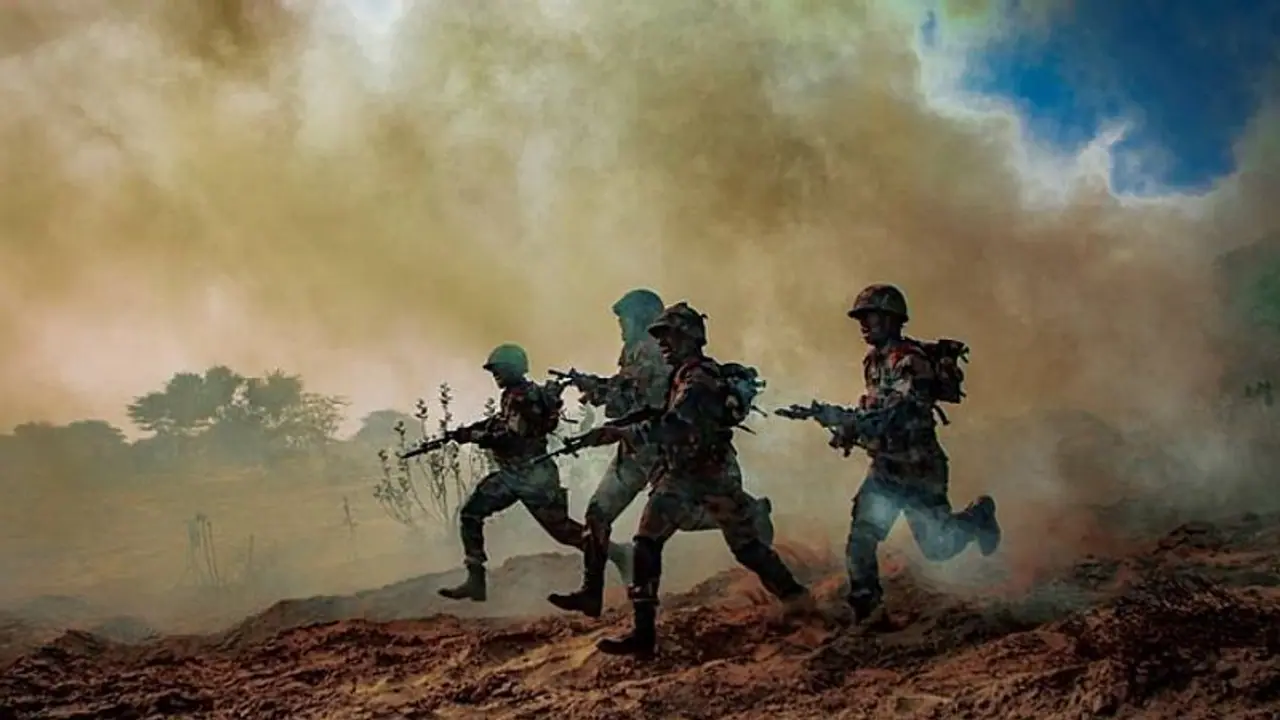As India celebrates the 22nd Kargil Vijay Diwas, commemorating our victory over Pakistan in 1999, it is essential to also remember the crucial role played by the doctors who relieved the soldiers' sufferings and healed their wounds.
As India celebrates the 22nd Kargil Vijay Diwas, commemorating our victory over Pakistan in 1999, it is essential to also remember the crucial role played by the doctors who relieved the soldiers' sufferings and healed their wounds.

In 1999, India launched Operation Vijay to evict the Pakistani soldiers and infiltrators, who had captured several posts in the Kargil sector on the Indian side of the Line of Control. The war between the armies of two nuclear-armed nations lasted for over two months and ended this day in 1999.
India lost 527 army personnel, including several officers. The army medics saved many lives. Let's know about the doctors who were honoured with gallantry awards later.
Col Vijay Kumar, Sena Medal
Col (then Capt) Vijay Kumar was posted as the Regimental Medical Officer of an Infantry Battalion at a location along the Srinagar-Leh Highway when he received a message that his unit was moving to the Drass sector on May 8, 1999, to evict Pakistani intruders.
He remembers an incident when he was moving towards the LoC with the Alpha Company of his battalion on May 27. They suddenly came under intense heavy enemy fire and artillery shelling. In this, many soldiers of the Alpha Company were injured and sustained multiple splinter injuries, including one fatality.
One of the young soldiers lost both his hands and was bleeding profusely. He became unconscious due to the shock when Col Kumar attended to him. He and his unit Battlefield Nursing Assistant shifted the patient behind some rocks to cover him from incoming enemy fire.
He managed to stop the bleeding by applying compression bandages on both hands and further administered IV fluids to manage the shock. Afterwards, they shifted the injured soldier along with others to the next medical echelon by stretcher-bearer till the road-head and thereafter by ambulance.
He was then airlifted to a Forward Surgical Center and survived because of his strong will to live and timely medical management in the battle area.
While expressing pride for his unit's achievements, Col Vijay also admits that the day was an emotionally demanding one for him.
Looking back to his childhood days, he said that he was drawn to the Olive Green uniform and was aware of the tough circumstances that the Army functions in. "For me, the war was definitely a different experience than working in a Military Hospital with a stable environment and which is adequately equipped," Col Vijay said.
During the war, he managed casualties in a rugged high-altitude area with no cover, especially under heavy enemy fire and artillery shelling under challenging and extreme weather conditions.
Col Rajesh W Adhau, Sena Medal
Colonel (then Captain) Rajesh Adhau feels nostalgic while remembering the first day of climb during the battle for Point 5140, when he and his then 2IC (Later Commanding Officer) were moving towards the Hump area; creeping towards their target inch by inch.
While he was completely tired and wanted to halt near a big boulder, his 2IC (Lt Col YK Joshi- Now Lt Gen YK Joshi, who currently heads the Northern Command) told him not to stop and pushed him further ahead.
After walking about 50 metres, he saw an artillery shell exploding on the same rock where he had intended to stop. Already horrified, he thanked God and his 2IC, who did not let him stop.
Col Adhau faced many such incidents during the course of the conflict, but he fondly remembers one incident in which when he was at Tololing complex and one of his jawans from the mess staff had recently got married.
During a chat with him, Col Adhau asked, "Why are you joining the front line? You should be amongst the administrative party!"
The braveheart replied, "Sir, fighting the enemy is my final Dharma! I have to fight against the enemy!"
After two hours, he received an unfortunate call informing him of his unit's first casualty by a gunshot wound in the forehead. It was the same jawan with whom he had spoken a couple of hours ago. He was completely shattered. Later, when Capt Vikram Batra made the supreme sacrifice, Capt Adhau himself lifted his mortal remains.
Col VV Sharma, Sena Medal
The war scene is dreadful as one is surrounded by casualties, catastrophe, fear of impending death; that is natural, but as they say, "courage is to hold on a minute longer", and the true gallant, valour and zeal to defeat the enemy which had encroached our land with wrong intentions was far more motivating than the war scene and its after-effects, said Colonel (then Captain) Vishal Vir Sharma.
Every passing day was creating epochal stories of heroism of soldiers and officers that motivated him to give his best. He decided to move with them to the war zone in the middle of battle.
One particular incident which Col Vishal can never forget in his life was that of Captain Anuj Nayyar, 2IC of 'C' Coy, who laid down his life for the territorial integrity of the nation on July 7, 1999.
"It was an unforgettable sight when mortal remains of Capt Anuj Nayyar were brought down from Point 4875 to Battalion headquarters. Everyone was shattered on the untimely demise of the brave, valiant and gallant officer. And I was distraught when sending Capt Nayyar's mortal remains to his home," he said.
During the Kargil battle, his role as an RMO was to provide immediate medical help to the war-wounded so that casualties were minimised.
Col Vishal was able to save precious lives as he decided to move his regimental aid post in close proximity to the battlefield, minimising the time of evacuation.
